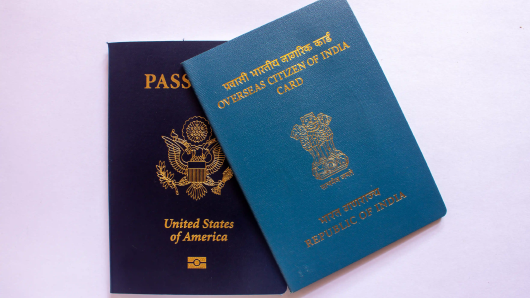Understanding NRE Savings Accounts: Features and Benefits Explained
December 09, 2024

If you are a non-resident Indian (NRI) looking for a convenient way to manage your foreign earnings in India, an NRE (Non-Resident External) Savings Account is worth considering. An NRE Savings Account is a Savings Account that allows NRIs to park their foreign income and enjoy tax-free interest while having the flexibility to fully repatriate their funds whenever they need.
However, since NRE Accounts fall under the purview of FEMA (Foreign Exchange Management Act), there are certain rules and regulations associated. In this article, we have outlined the various features and benefits of NRE Savings Account as well as the regulations that come with it.
Features and Benefits of NRE Savings Account
1. Higher Interest Rates
Though NRE Savings Account interest rates vary across banks, Small Finance Banks like Ujjivan SFB offer higher interest rates on such accounts. This can help you maximise returns on your savings.
2. Tax Benefits: Interest Earned Not Taxable in India
The interest earned on your NRE Savings Account is tax-free in India. However, you should check tax regulations in your country of residence as you may have to declare your interest income earned via NRE Savings Account.
3. Safe and Secure Fund Management
Thanks to NRI Accounts, managing funds in India while living abroad has become much easier. Such accounts facilitate safe and secure transactions.
Point to note: The funds held in an NRE Savings Account are maintained and transacted in Indian Rupees (₹). You can freely convert INR back to your home currency (on the basis on prevailing exchange rates) while transferring funds.
4. Fully Repatriable Funds
An NRE account offers fully repatriable funds, allowing you to transfer money from your NRE account to your overseas bank account without any restrictions. However, for NRO Savings Account, the repatriation limit is restricted to USD 1 million per year as per FEMA guidelines. There are no restrictions as such for NRE Accounts.
5. Convenient Account Access and High Liquidity
Like any NRI Account, you can access your NRE Savings Account anytime with the help of Internet Banking and Mobile Banking. Also, such accounts don't come with any lock-in period and allow easy withdrawal and transfer of funds whenever needed, subject to terms and conditions.
6. No Minimum Balance Requirement
Banks like Ujjivan SFB don't impose any minimum balance requirement for NRE Savings Account. This effectively mitigates the compulsion to maintain a specific balance in the account to keep it functional.
7. Additional Benefits
Few other benefits include inward and outward remittance facilities at competitive exchange rates, investment opportunities in India in various financial instruments like stocks, mutual funds, etc., benefits of Debit Card, safe and secure fund transfer across borders,
Maximising the Benefits of NRE Savings Account
Scenario 1: Planning for Retirement
Rajesh, an NRI working in the United States, wants to secure his retirement in India. He decides to open an NRE Savings Account to start saving for his future. By depositing a portion of his earnings into the account regularly, Rajesh can take advantage of the tax-free interest and repatriation benefits offered by the account. This allows him to grow his savings while maintaining financial flexibility for his retirement plans.
Scenario 2: Supporting Family in India
Priya, an NRI living in Canada, wants to support her family back home in India. She opens an NRE Savings Account to easily transfer funds to her family whenever they need financial assistance. The fully repatriable funds and convenient account access provided by the NRE account allow Priya to efficiently manage her finances and provide for her loved ones without any hassle.
Scenario 3: Investing in Indian Real Estate
Amit, an NRI residing in Oman, wishes to invest in real estate properties in India. He opens an NRE Savings Account with Ujjivan Small Finance Bank to accumulate funds for his investments. The competitive interest rates on the account balance help Amit grow his savings faster while the full repatriation facility ensures that he can transfer funds abroad when needed for property acquisitions or other real estate ventures.
All these scenarios reflect how NRE Savings Accounts can help you save for your goals. However, before making any investment decisions, it’s recommended to consult a registered investment adviser.
Disclaimer: The above scenarios are for illustration purposes only. The name of persons and situations depicted are fictitious and has no resemblance with any person living or dead.
NRE Savings Account: Deposit Rules and Regulations
You can deposit the following in your NRE Savings Account:
- Remittances from your overseas account or transfers from an NRE (Non-Resident External) or FCNR (B) (Foreign Currency Non-Resident Bank) account.
- Funds from your NRO account up to USD 1 million per financial year, applicable to capital income such as proceeds from fixed deposit maturities, property sales, and the redemption of mutual funds and shares.
- Current income earned in India, including rent, dividends, pensions, and interest.
- Interest earned on the balance in the account and on investments made from the account in India.
- Maturity proceeds from investments made using the NRE account.
Who can Open NRE Savings Account?
Any NRI and PIO (Person of Indian Origin) can open an NRE Savings Account upon submission of valid documents. The same has been listed below.
Documents Required to Open NRE Savings Account
- Passport
- Address Proof: Driving license, Voter’s ID, Aadhar card, job card issued by NREGA, etc.
- Non-Residential status proof in the form of Visa/Work Permit/Residence Permit for Indian Passport holder or OCI Card/document evidencing India connect for Overseas Passport holder
There could be other additional documents required. Please contact your bank for necessary information.
Final Thoughts
Opening an NRE savings account presents numerous benefits and features tailored for NRIs. With tax-free interest, full repatriation of funds, competitive exchange rates, and convenient access for family members, an NRE account offers a secure and efficient way to manage your foreign income in India.
Planning to open an NRI Savings Account to manage your income in India? Ujjivan SFB offers NRE Savings Account that comes with multiple benefits, including safe and secure inward and outward remittance facilities at competitive exchange rates, higher interest rates, Internet Banking and Mobile Banking facilities, and more.
Alternatively, you can browse through Ujjivan SFB product suite - our wide range of financial products are designed to make your financial life better.
Disclaimer:
The contents herein are only for informational purposes and generic in nature. The content does not amount to an offer, invitation or solicitation of any kind to buy or sell, and are not intended to create any legal rights or obligations. This information is subject to updation, completion, amendment and verification without notice. The contents herein are also subject to other product-specific terms and conditions, as well as any applicable third-party terms and conditions, for which Ujjivan Small Finance Bank assumes no responsibility or liability.
Nothing contained herein is intended to constitute financial, investment, legal, tax, or any other professional advice or opinion. Please obtain professional advice before making investment or any other decisions. Any investment decisions that may be made by the you shall be at your own sole discretion, independent analysis and evaluation of the risks involved. The use of any information set out in this document is entirely at the user’s own risk. Ujjivan Small Finance Bank Limited makes no representation or warranty, express or implied, as to the accuracy and completeness for any information herein. The Bank disclaims any and all liability for any loss or damage (direct, indirect, consequential, or otherwise) incurred by you due to use of or due to investment, product application decisions made by you on the basis of the contents herein. While the information is prepared in good faith from sources deemed reliable (including public sources), the Bank disclaims any liability with respect to accuracy of information or any error or omission or any loss or damage incurred by anyone in reliance on the contents herein, in any manner whatsoever.
To know more about Ujjivan Small Finance Bank Products Visit:"https://www.ujjivansfb.in"
All intellectual property rights, including copyrights, trademarks, and other proprietary rights, pertaining to the content and materials displayed herein, belong
to Ujjivan Small Finance Bank Limited or its licensors. Unauthorised use or misuse of any intellectual property, or other content displayed herein is strictly prohibited and the same is not intended for distribution to, or use by, any person in any jurisdiction where such distribution or use would (by reason of that person’s nationality, residence or otherwise) be contrary to law or registration or would subject Ujjivan Small Finance Bank Limited or its affiliates to any licensing or registration requirements.
FAQs
1. Are there any charges for transferring funds from my NRE account to my overseas bank account?
The fees and charges can vary across banks. For Ujjivan SFB, you can check the fees and charges here.
2. Can I transfer funds from NRO Account to NRE Account?
Yes, you can transfer funds from NRO Account to NRE Account subject to terms and conditions stipulated by FEMA. As per guidelines, NRIs can transfer only up to USD 1 million from an NRO Account to an NRE Account in a financial year. Also, you may need the following documents while transferring funds:
- Signed cheque/letter for funds transfer
- Form 15CA and 15CB for tax compliance
- Identity and address proof
- Bank statements
- FEMA declaration
- Documented evidence of source of funds
For better clarity, contact your bank.
3. Can I hold multiple NRE accounts with different banks?
Yes, you can maintain multiple NRE accounts with different banks as long as you comply with the Reserve Bank of India's regulations regarding maximum deposit limits.
4. What happens if I become a resident of India again?
If you change your residential status from non-resident to resident, your NRE account will be reclassified as a resident savings account. You will need to inform your bank and complete the necessary formalities.
5. Can I open an NRE account jointly with a resident Indian?
No, joint holding with a resident Indian is not allowed for an NRE account. However, you can open a joint NRE account with another NRI.
Latest Blogs

Dussehra 2025: How to Win Your Financial Battles with Smart Saving
Dussehra 2025 (also known as Vijayadashami) falls on Thursday, October 2, 2025.

eSIM Scam in India: I4C Warns Mobile Users About Rising Fraud – How to Stay Safe
The Indian Cybercrime Coordination Centre (I4C), a wing of the Ministry of Home Affairs, issued a strong warning to mobile users about the rapid increase in eSIM fraud in India.

How to Link PAN with Aadhaar: Step-by-Step Guide & Consequences of Not Linking
Linking your Permanent Account Number (PAN) with your Aadhaar is no longer just a best practice.

Annual Information Statement (AIS): A Complete Guide for Stress-Free ITR Filing
India’s tax season is in its final stretch.

ITR-1 (Sahaj) Restrictions: Income Sources Not Allowed & Filing Rules
With just a few days left before the 15 September 2025 deadline for filing Income Tax Returns (ITRs) for Assessment Year (AY) 2025-26, many taxpayers are rushing to submit their forms online.





